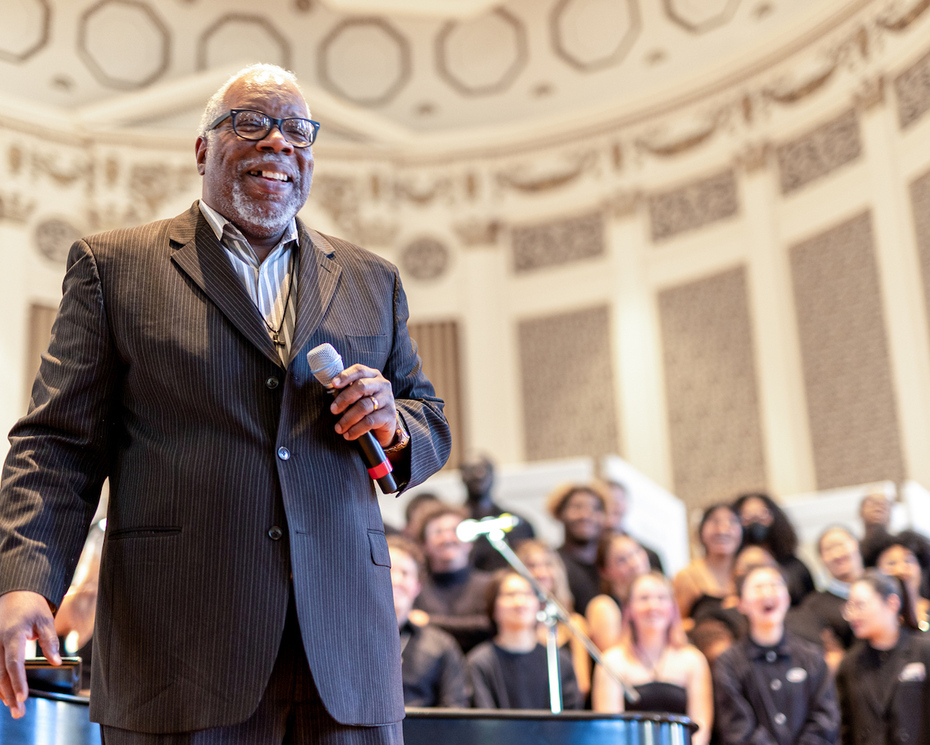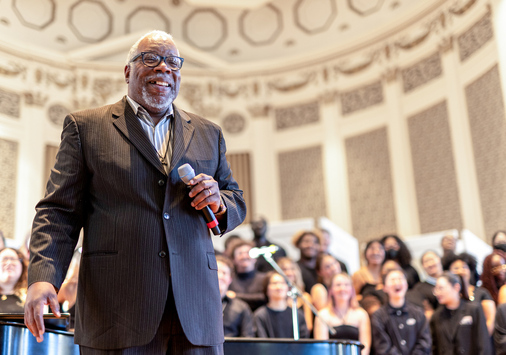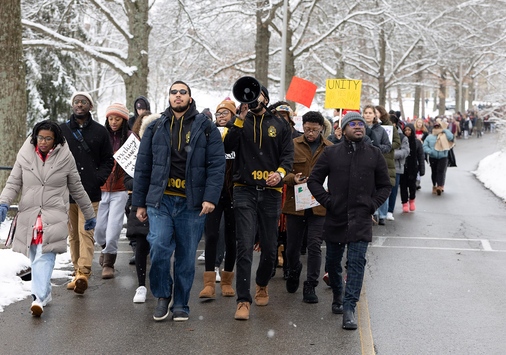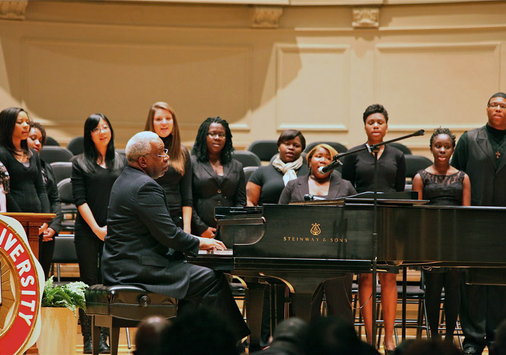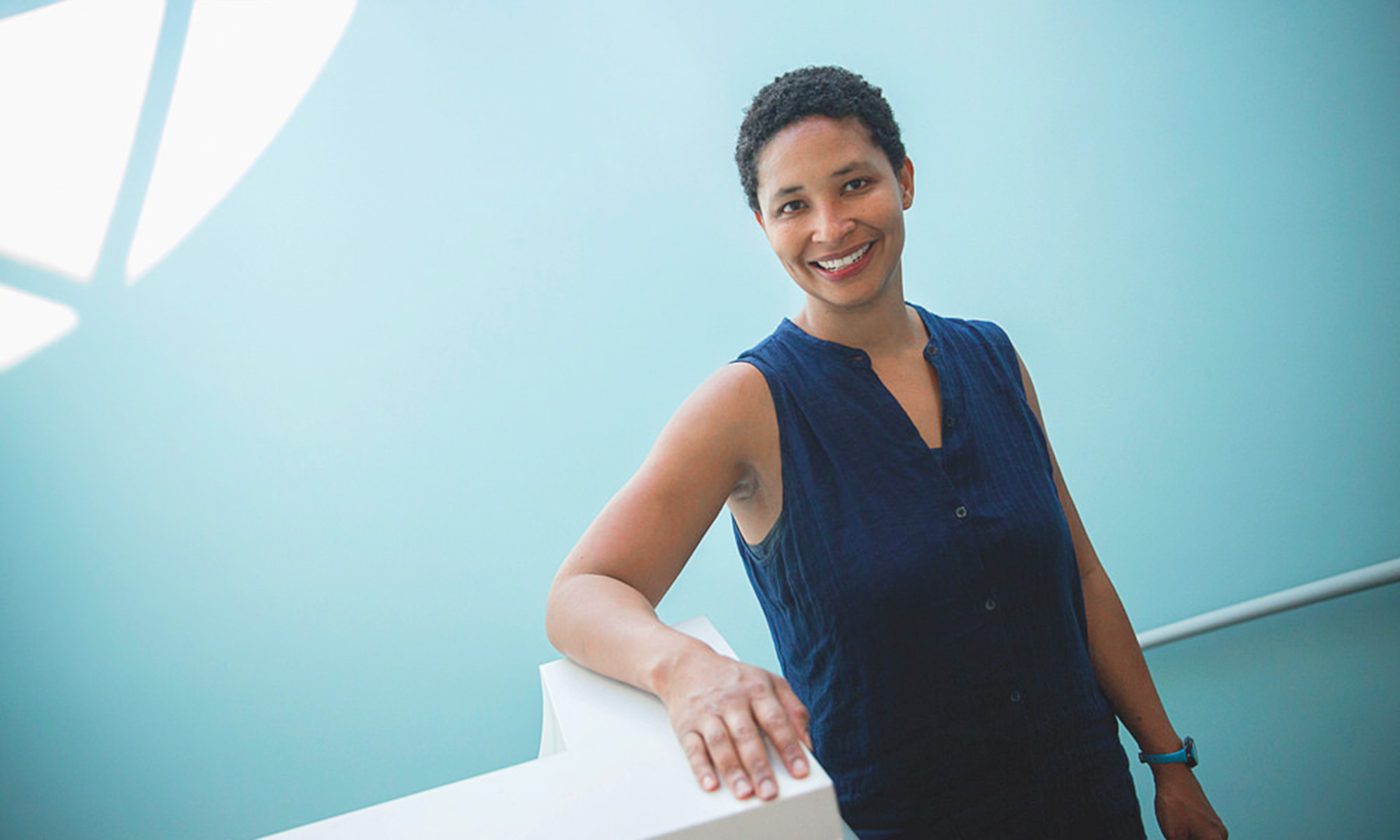
Monday, February 8, 2021
On Monday February 8, 2021 at 4:30pm we will host (in virtual conversation with our own Dr. Heather Pool) Dr. Danielle Allen, the James Bryant Conant University Professor at Harvard University, and the Director of Harvard’s Edmond J. Safra Center for Ethics.
Dr. Allen’s work, as a scholar, as a professor of students, and as the principal investigator for the Democracy Knowledge Project is centered on issues of justice, equality and democratic practices, particularly in the context of continuing inequities and inequalities in the United States.
Dr. Allen will also be participating in a student ‘class session’ the following morning, Tuesday February 9.
Danielle Allen
MacArthur “Genius” Danielle Allen, James Bryant Conant University Professor at Harvard University and Director of Harvard’s Edmond J. Safra Center for Ethics, is a political theorist who has published broadly in democratic theory, political sociology, and the history of political thought.
Inspired by her work in justice and citizenship, and troubled by the fact that so few Americans actually know what the Declaration of Independence says, Allen set out to explore the arguments of the Declaration, reading it with both adult night students and University of Chicago undergraduates in Our Declaration: A Reading of the Declaration of Independence in Defense of Equality. Keenly aware that the Declaration is riddled with contradictions―liberating some while subjugating slaves and Native Americans―Allen and her students nonetheless came to see that the Declaration makes a coherent and riveting argument about equality. “[A]n invaluable civics lesson” (The Washington Post), Our Declaration was awarded the Heartland Prize, the Zócalo Book Prize, and the Society of American Historians’ Francis Parkman Prize.
In Cuz: The Life and Times of Michael A., “an elegiac memoir and social jeremiad” (Henry Louis Gates), Allen recounts her heroic efforts to rescue Michael Alexander Allen, her beloved baby cousin, who was arrested at fifteen for an attempted carjacking. Tried as an adult and sentenced to thirteen years, Michael served eleven, and three years later, he was dead. Hailed as a “literary miracle” (Washington Post), this fierce family memoir makes mass incarceration nothing less than a new American tragedy.
Allen is the recipient of the 2020 John W. Kluge Prize for Achievement in the Study of Humanity, an award administered by the Library of Congress that recognizes work in disciplines not covered by the Nobel Prizes. Allen is also the principal investigator for the Democratic Knowledge Project, a distributed research and action lab at Harvard University, which seeks to identify, strengthen, and disseminate the bodies of knowledge, skills, and capacities that democratic citizens need in order to succeed at operating their democracy; a Chair of the Commission on the Practice of Democratic Citizenship; past Chair of the Pulitzer Prize and Mellon Foundation Boards; a MacArthur “Genius” Grant recipient; and a member of the American Academy of Arts and Sciences and the American Philosophical Society.
Remarks by Associate Professor Heather Pool on Martin Luther King Jr. Day, 2021
Honoring Dr. Martin Luther King, Jr. Today and in the Coming Weeks
Dr. King’s legacy as preacher, teacher, thinker, speaker, and advocate, continues to shape our world and our current thoughts about order and justice. Two weeks ago Reverend Raphael Warnock, pastor of Ebenezer Baptist Church in Atlanta – the church that Dr. King led between 1960 and 1968, his leadership ended by an assassin’s bullet – became the Senator-elect from the state of Georgia. Warnock is the first African American senator to represent that state, and there is little doubt that the words and deeds of Dr. King (along with so many less well-known seekers of justice) helped to make Warnock’s election possible.
Dr. King’s words and actions continue to guide those who seek justice. For King, justice was always a central focus. In King’s 1963 “Letter from a Birmingham Jail,” he points out that moderates often condemn those who break the law or those who demand that change happen quickly. King argues against this condemnation by pointing out that the Jim Crow South may have been legally segregated and orderly, but it was deeply unjust. He confesses his frustration with the white moderate, writing:
I have almost reached the regrettable conclusion that the Negro’s great stumbling block in the stride toward freedom is not the…Ku Klux Klanner, but the white moderate who is more devoted to “order” than to justice; who prefers a negative peace which is the absence of tension to a positive peace which is the presence of justice…who lives by the myth of time and who constantly advises the Negro to wait until a “more convenient season.” Shallow understanding from people of goodwill is more frustrating than absolute misunderstanding from people of ill will. Lukewarm acceptance is much more bewildering than outright rejection.
I had hoped that the white moderate would understand that law and order exist for the purpose of establishing justice, and that when they fail to do this they become dangerously structured dams that block the flow of social progress.
King’s vision of justice crossed racial and class lines, and his questions to his fellow Americans remain as vivid now as they were 50 years ago. Is the existing order just? Are our laws and processes encouraging a “negative peace” rather than a “positive peace?” How must we change so that our vital agreed-upon democratic order serves, rather than frustrates, justice for all?
We are living in unprecedented times, and we are at an inflection point. This is not the first nor the only time in America’s history that we have been at such a crossroads. In a 1967 speech to the Southern Christian Leadership Conference Convention, Dr. King himself asked “Where Do We Go From Here?” What can we learn by revisiting King’s legacy in 2021? What lessons can we take forward into the coming years?
The MLK Day Committee (Dr. Veerendra Lele, Dr. John Jackson, Raj Bellani, Dr. Heather Pool, Ginny Sharkey) looks forward to welcoming our MLK Day speaker, Dr. Danielle Allen of Harvard University, for a conversation on February 8 at 4:30 pm.
On this day and in this challenging time, Denison University honors Dr. King’s legacy.
